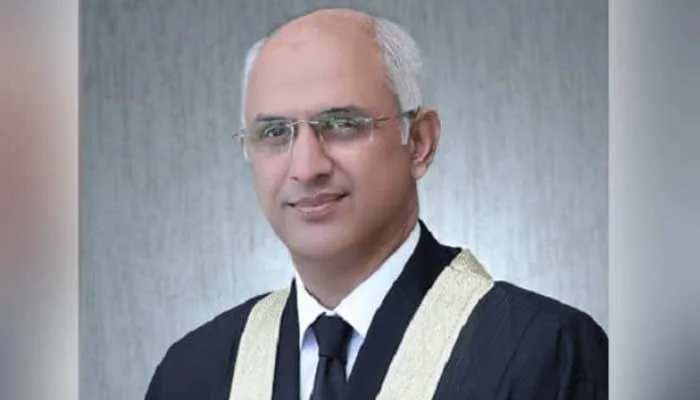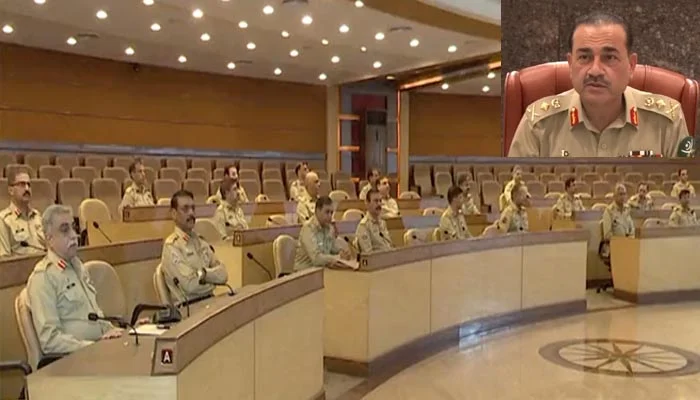Justice Mohsin Akhtar Kayani of the Islamabad High Court presided over a critical hearing concerning the recovery of missing Baloch students. This session revolved around the implementation of the recommendations made by a commission established to address this pressing issue. The Attorney General, Mansoor Usman, represented the federal government, while Iman Mazari, the lawyer for the missing Baloch students, presented her arguments.
Court’s Stance on Agency Operations
Justice Kayani made significant remarks about the activities of intelligence agencies during the hearing. He emphasized that the court does not object to the lawful activities of agencies but strongly opposes any illegal operations. His comments highlighted the judiciary’s role in ensuring that all actions by state bodies adhere strictly to the law.
“No one has any objection to the work of the agencies; the objection is to the illegal work,” Justice Kayani stated, encapsulating the court’s position on the matter.
Presentation of the Missing Persons Committee Report
The Attorney General presented the Missing Persons Committee’s report to the court. Justice Kayani inquired about the number of people arrested over the past decade and how many had been reported missing or harassed. The Attorney General asserted that intelligence agencies do not engage in harassment and mentioned some progress in addressing the issue.
Justice Kayani responded by suggesting that intelligence agencies should now be accountable to police stations, indicating a need for more transparency and adherence to legal frameworks in their operations.
Legal and Ethical Considerations
The court’s dialogue extended to the broader implications of illegal detentions and the necessity of proper auditing and oversight. Justice Kayani questioned whether there is an annual audit of agency funds, implicitly raising concerns about financial transparency and accountability. He stressed the importance of making police, the Counter Terrorism Department (CTD), and the Federal Investigation Agency (FIA) more effective, while other agencies should support them without engaging in extra-legal activities.
“The court does not talk about stopping judges, lawyers, journalists, parliamentarians, and agencies from working according to the law, but only about stopping them from working against the law,” Justice Kayani reiterated, clarifying the judiciary’s role in upholding lawful practices.
Attorney General’s Response
The Attorney General acknowledged the complexity of the issue and suggested that a political solution is essential for resolving the problem of missing persons. He emphasized the need for the state to show compassion and reported substantial progress in missing persons cases. The Attorney General requested additional time to continue their efforts in this regard.
“The state will have to show compassion. We have done a lot of work in missing persons cases, and we will do what is left, just give us some time,” he pleaded.
Justice Kayani appreciated the Attorney General’s efforts, noting that many missing persons had returned home due to these endeavors. This acknowledgment underscored the positive impact of the ongoing efforts to resolve these cases.
Judicial Independence and Public Perception
Addressing the broader context of public opinion and media influence, Justice Kayani remarked that the courts remain impartial and unaffected by external pressures, including press conferences or public statements made on behalf of individuals. This assertion reinforced the independence of the judiciary in handling sensitive issues.
“It does not matter if someone holds a press conference on behalf of someone; the courts are beyond all these things,” Justice Kayani affirmed, highlighting the court’s commitment to justice without succumbing to external influences.
The hearing concluded with the court adjourning the case for further proceedings. This pause allows time for additional efforts and measures to be implemented, reflecting the court’s deliberate and ongoing commitment to resolving the issue of missing persons in Pakistan.
The Islamabad High Court’s session on the recovery of missing Baloch students underscored the critical balance between national security and human rights. Justice Kayani’s remarks and the subsequent discussions highlighted the need for legal adherence, transparency, and compassionate state intervention. As the court continues to monitor and direct efforts in this matter, the hope remains that effective solutions will be found, bringing relief and justice to the affected families.



